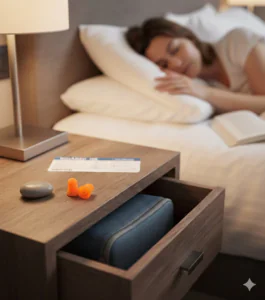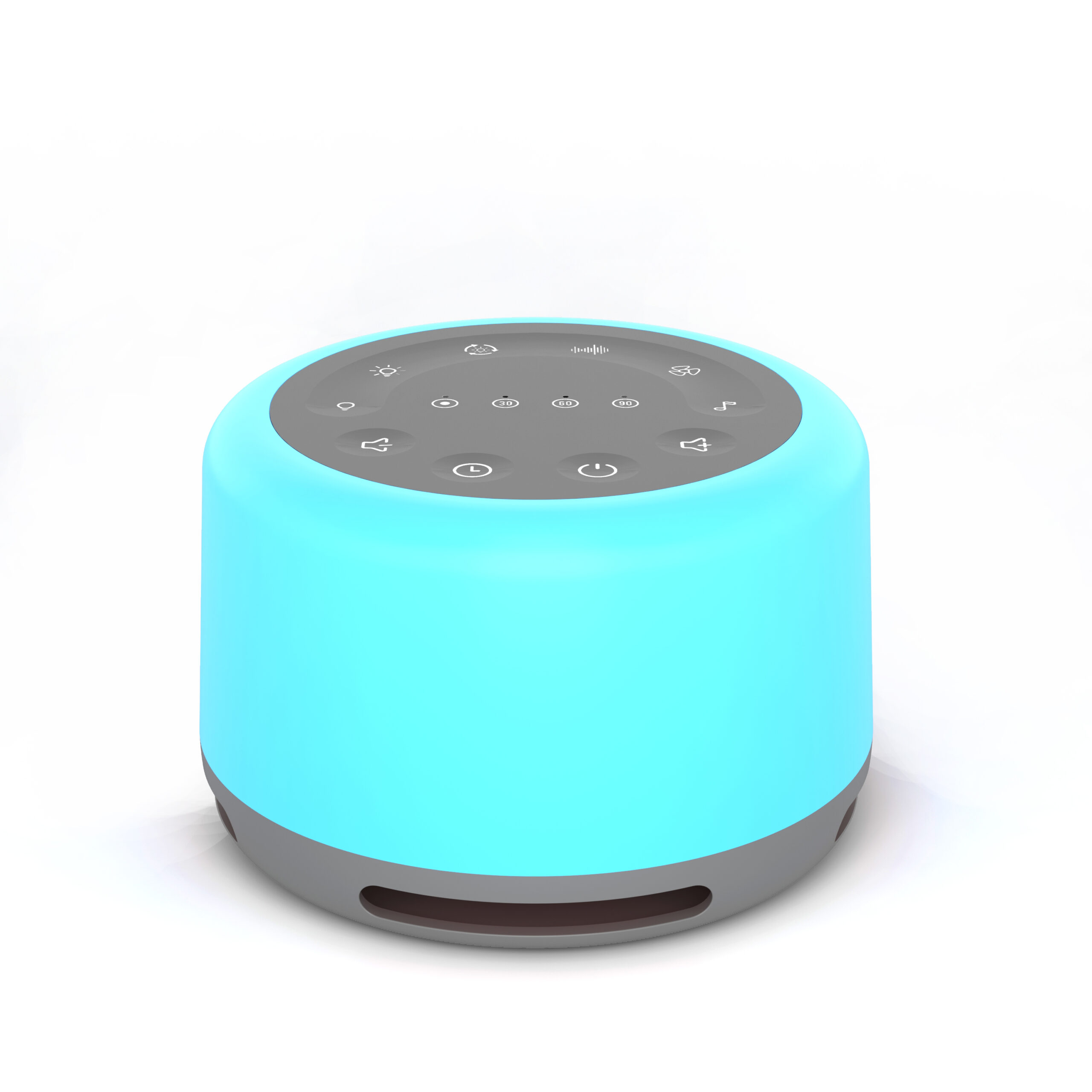Blog
9 Best Sleep Solutions for Busy Mums
- Daniel Hastings
Table of Contents
Being a busy mum can be challenging, and one of the significant challenges is ensuring you get sufficient rest. Being a mum comes with endless demands whether your kids are infants, toddlers, or even teens.
Sleep not only helps you to have more energy, it’s also great for your physical and mental health. Therefore, you should prioritize your sleep and rest to maintain your physical and mental well-being.
Easier said than done, right?
How to Get Sleep Solutions for Busy Mums?

1. Establish Your Bedtime Routine
We know how important it is to establish a bedtime routine for our kids, but mothers often overlook its importance for their own benefit. Instead, mums tend to push themselves until they’re ready to fall into bed, frazzled. Then they’re lucky if their brain turns off, as they’re already planning the to-do list for the next day.
Create a relaxing bedtime routine to tell your body it’s time to wind down. Consider it the amber warning light on a set of traffic lights telling your body to slow down before stopping abruptly. Your bedtime routine can include activities such as the following:

- Taking a warm bath
- Reading a book
- Doing a puzzle
- Enjoying a warm beverage
- Meditating
- Practicing gentle stretches or relaxation exercises
Your routine could simply mean stopping all busyness for half an hour before bed. Just remember to enjoy a relaxing activity before bed every evening to make it a habit. It may take some practice, but you will appreciate its benefits for your mood, health, and productivity.
2. Create A Sleep-Conducive Environment

Make your bedroom a tranquil and cozy place that promotes sleep. For example, ensure your mattress and pillows are supportive and comfortable and your blanket keeps you warm. In addition, your room should be cool, dark, and quiet at night to calm your senses instead of stimulating them.
Consider wearing earplugs or listening to a white noise machine to mask background noises and an eye mask for extra darkness behind your eyelids.
3. Prioritise Your Sleep
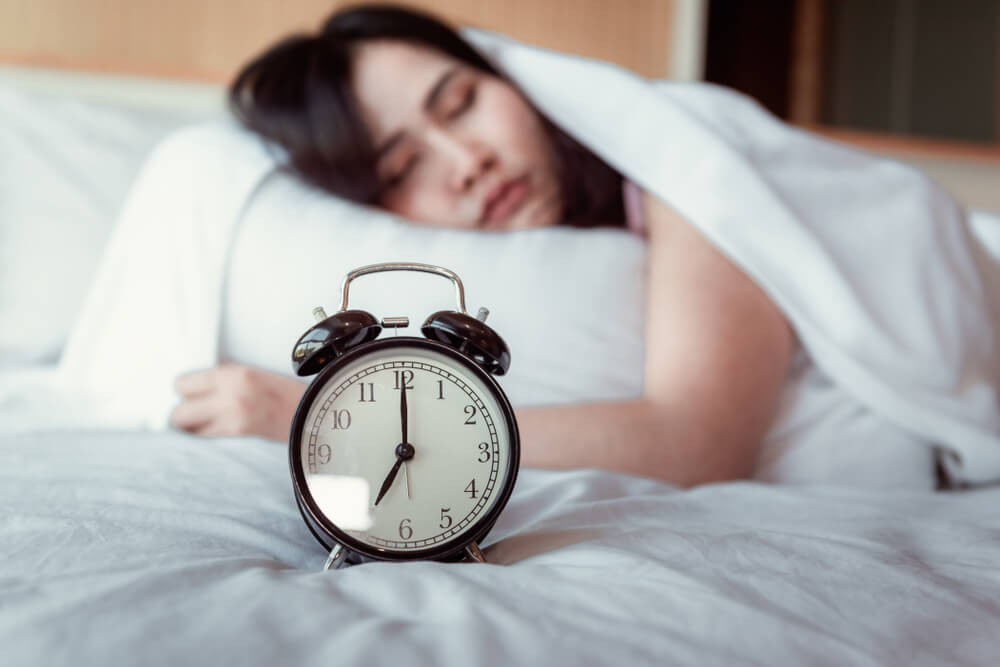
Prioritize your sleep by setting aside enough time for it, which requires a conscious effort on your part. Adults need sleep between 7 – 9 hours in a 24-hour cycle, but unfortunately, most of us don’t get to sleep that much. However, even as a busy mum, you can prioritize your sleep by establishing a consistent sleep schedule.
Attempt to go to bed and wake up at the same time (or close enough) every day—even on weekends—to ensure you get in those sleep hours. Additionally, avoid frequent late-night activities that can disrupt your sleep.
4. Delegate Tasks And Ask For Help

As a busy mum, you must delegate tasks and ask for help when needed. This is especially true if you’re a single mum who needs a bit of help shouldering all or most of the child-rearing responsibilities.
Doing so is not a sign of weakness, but self-care, which helps you be a more responsive and involved parent. You can involve your partner, family members, or friends in sharing responsibilities that will free up time for you to rest and relax.
Alternatively, if you have the means, you can employ a nanny or au pair to help you with the kids a few days a week.
5. Practice Stress Management
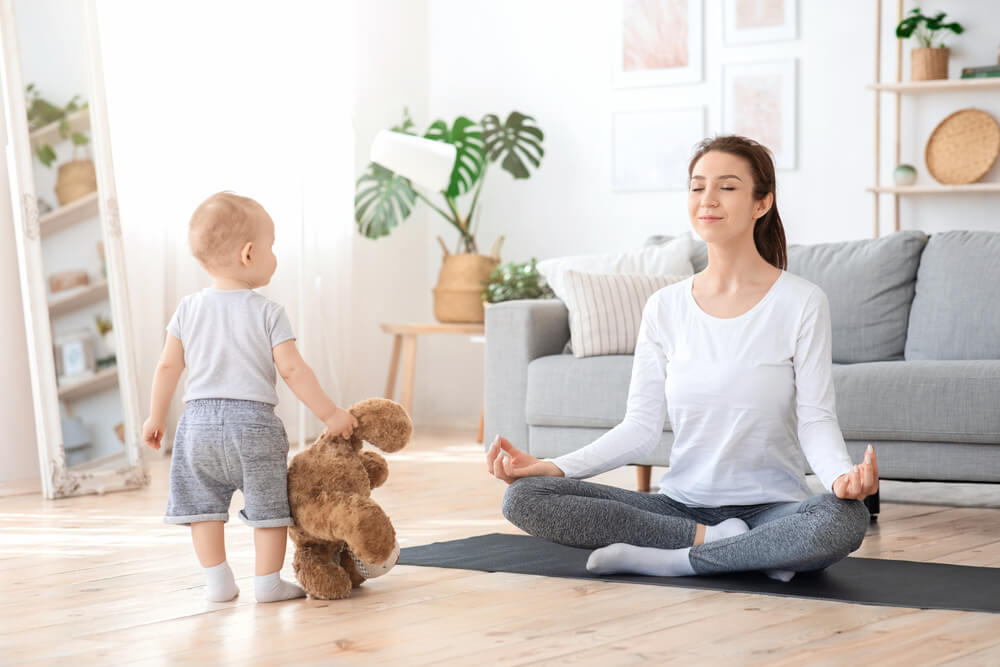
Stress and worry can interfere with sleep, so it is wise to find healthy ways to manage them. Then, to make things worse, a lack of sleep does not help your outlook on life, making you feel more worried, stressed, or despondent.
Activities that can help to manage your stress levels include the following:
- Practicing deep breathing exercises
- Counting in increments of a number, e.g., 7
- Going for a walk
- Meditating
- Journaling
- Talking to a trusted person
- Getting a massage
6-Limit Stimulants Close To Bedtime
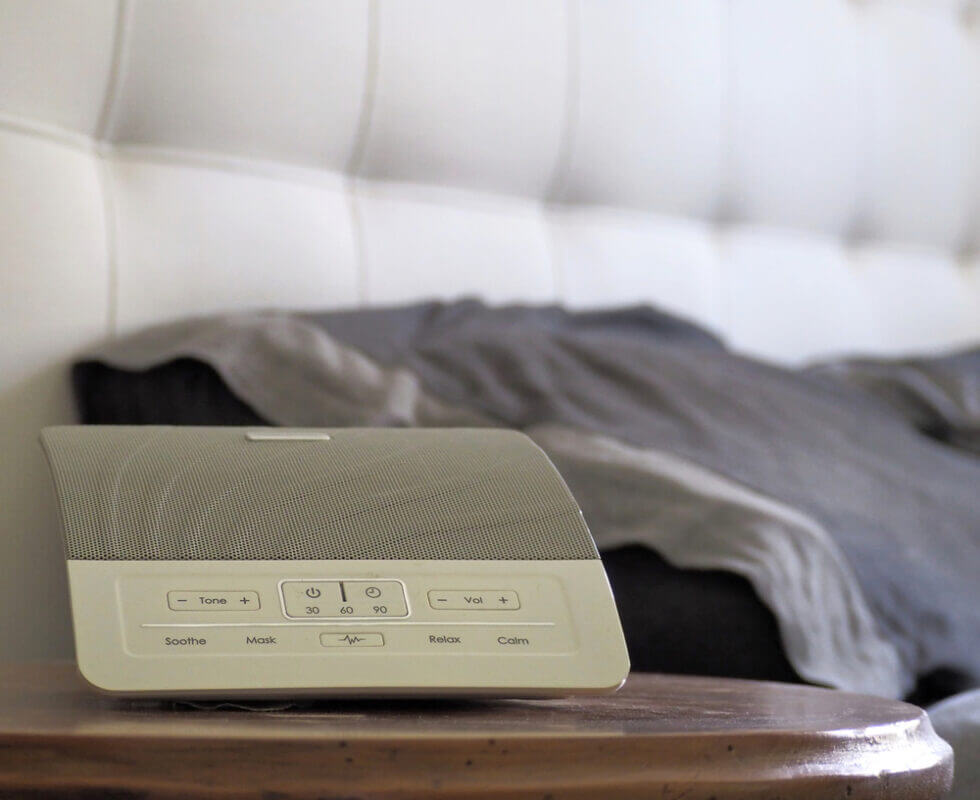
Practice good sleep hygiene by limiting stimulants close to bedtime. Examples of things to avoid before bedtime include caffeine, alcohol (the sugar in alcohol acts as a stimulant), and electronic devices. These can make it difficult to fall asleep and disrupt your sleep patterns.
Additionally, ensure your bedroom is dark and quiet when you go to bed. If your sleep is distracted by noise, you should invest in a white noise machine or earplugs to help you sleep better.
Creating good sleep habits is important for optimal mental and physical well-being – so ensure you get enough restful sleep each week!
7. Nap Strategically Where Possible

Power naps can be beneficial for both physical and mental health. Taking short, restorative breaks during the day can help clear your mind and reduce stress.
If you have the opportunity, take a short power nap (20–30 minutes) or two during the day to recharge and feel more alert. These are especially helpful if you can’t get a full night’s sleep. However, refrain from taking power naps in the late afternoon, as they might interfere with your night-time sleep.
If you can’t nap in your bed, find a safe place to snooze where you are. In your car waiting for the kids to finish sport or on the couch while your child finishes their homework are both great nap spots.
8. Eat A Balanced Diet

Proper nutrition plays a role in sleep quality. Therefore, aim for a balanced diet that includes nutritional macros in fruits, vegetables, whole grains, lean proteins, and healthy fats.
If you’re battling the typical mom-on-the-run challenges of eating the right foods, you can join the vast number of people who supplement their diets with vitamins. This will ensure that you’re getting the nutrients you need. Just remember, supplements are not a substitute for food, they’re there to complement and enhance your diet to help keep you in optimal health.
Additionally, avoid eating large or heavy meals close to bedtime and limit your intake of sugary or spicy foods that could cause indigestion or discomfort.
9-Stay Physically Active

Regular exercise promotes better sleep, so engaging in at least half an hour of moderate-intensity activity every day is helpful. Examples of moderate physical activities include the following:
- Going for a brisk walk or jog,
- Doing yoga or Pilates,
- Enjoying a gentle cycle around the neighborhood, and
- Swimming lengths in the swimming pool.
However, avoid exercising just before bedtime, as it can be stimulating and interfere with your sleep routine.
Consult A Healthcare Professional If Necessary
Suppose you consistently struggle to get decent sleep and rest despite trying these strategies. In that case, it may be time to consult a healthcare professional. They can help you identify the reasons for your sleep deprivation and guide you in a tailored approach to addressing your situation and needs.
Healthcare professionals who can help you solve your underlying sleep issues include your family doctor, psychiatrist, or a sleep health foundation.
Sound Sleep for Super Busy Mums: Reenergize Your Life
Self-care is essential for your overall well-being, including getting sufficient rest and sleep. Don’t be afraid of prioritizing sleep and implementing the sleep solutions recommended. Instead, getting enough sleep will enhance your energy levels, mood, and ability to handle the demanding life of being a busy mum.
Conclusion:
In conclusion, for parents who work, the pressures of parenting can frequently result in anxiety and tiredness. However, these extraordinary women can find the rest and refreshment they need by understanding and putting into practice the nine greatest sleep solutions adapted to their unique challenges.

